Pursuit of Play, vol. 3: Why we play

Welcome back to the Pursuit of Play. This month, here’s what we’ve got:
- The Pokemon Update - highlights from the regional championship in Lille, France
- Reflections on Play - investigating some of the different motivations we bring to play & the various ways we find play satisfying
- a note on longevity - or, why I think a lot of the world of health & fitness has it wrong
- a study in contrasts - what I learn from going back to the same place year after year
As always, you can check out previous editions here.
I'll warn you: this is a long one...Away we go!
The Pokemon Update
How many ways are there to fail to win at Pokemon? Well, let me give you just a few:
- Round 1: paired into Dragapult, normally a slightly favorable matchup…but she drops a Jamming Tower card, which completely screws up my strategy[1] . All of my cards that protect me from attacks are now useless. I lose. “I almost didn’t put that card in my deck - I literally just added it in last night,” she tells me afterwards.
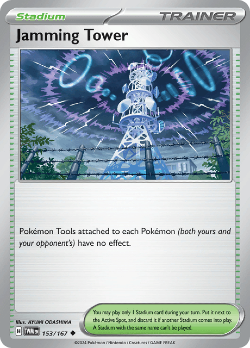
- Round 2: paired into Quad Thorns, a very favorable matchup…except, no wait, it’s not Quad Thorns - this guy has snuck in 2 different Pokemon that slow me down. Still, I almost steal a tie and miss just 1 card that I need on my very last turn[2].
- Round 3: paired into Charizard, usually a favorable matchup when one doesn’t prize both of the Pidgeots that one needs in order to get resources in the second game. One loses pretty badly as a result.
- Round 4: paired into a Terapagos, which I’ve never played against before. Heading into the last turn, I have the win in hand…and then I commit a double prize penalty, seizing a draw from the jaws of victory.
But truly, there’s one meta reason that I’m losing all of these matches: because I’m playing a wonky, rogue deck that needs too many things to go exactly right in order for it to work. I had made some big changes to my Tsareena deck, and while I technically did worse this time than in Dortmund I actually felt better about it.
Whereas I was 0-3-1 after 4 rounds when I decided to drop, the children were having a much better day. At the same time, Nate was 4-0 and Tommy was 2-2. WIth 3 rounds left to play, Nate needed either 1 win or 3 ties to qualify for Day 2. Tommy needed to win out the rest of the way to make it to the next day.
They had both made modest changes to their decks - Nate had changed 2 cards on his Dragapult in anticipation of seeing a lot of Raging Bolt decks[3], and through the first 4 rounds he had already feasted on 2 of them. Tommy also stuck with his deck from Dortmund - a Raging Bolt in fact - but had spent time studying the different builds of the deck that successful Masters players were using and used that to concoct their own variation[4].
Over the next 2 rounds, Nate paired into 2 of the top juniors in Europe and came out of both matches with ties[5]. Tommy’s win streak also kept up. We headed into the final round of the day with Tommy needing 1 more win to make Day 2 and Nate able to make it with a win or a tie, and when pairings were announced we saw that Nate was matched against another kids in the same position - meaning they could just agree to draw and both advance to Day 2 without drawing a single card. Done and done. Tommy didn’t have the same luxury, but then 10 minutes after the round started they were already finished - walking up to me with a huge fist pump: they won the first game swiftly and then pulled off a game 2 donk[6].
Both kids advanced to Day 2, clinching at least a top 32 finish.
Day 2 is a change in the format this year - last year, it was 7 rounds on day 1 and at the end of it the top 8 went into a single elimination bracket the next day. This year, it’s 7 rounds on day 1, everyone who scores at least 15 points (either 5 wins or 4 wins and 3 ties like Nate) advances to the second day to play 2 more rounds after which it continues on to the single elimination top 8[7].
This was exactly where Nate hoped to be coming into this tournament, but Tommy was pleasantly surprised given that it’s only their second tournament in the more difficult Senior division.
So we went back to the hotel, stopping for tacos on the way because somehow we ate tacos for dinner every night, finding our way to 3 different Mexican restaurants…which is not quite what one envisions when one thinks of eating in France[8], and then we returned for at least 2 more rounds the next morning.
And it wasn’t exactly a triumph: Nate won 1 and lost 1, Tommy lost both. Still, it was good enough that Nate finished 13th out of 130 and Tommy finished 24th out of 135. Good enough that both stay on pace for their goals this season.
A funny little postscript
Another Dutch local - James Cox - won the Masters division of the Lille Regional Championship piloting a Regidrago deck. This was not a huge shocker, given that he's one of maybe 100 Pokemon players in the world who do it professionally, but still a pleasant outcome.
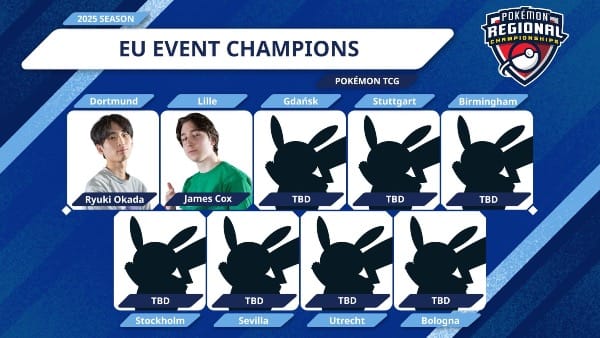
A week later, I took the kids to play a very small local event - 3 rounds, best of 1 as compared to Lille's 12 rounds, best of 3 for Masters - and the kids were so excited because they thought James might also put in an appearance. I explained to them that he almost certainly was not coming because he secured his Worlds invite by winning that tournament, so he probably wasn't going to bother with playing rinky dink locals.
A total of 5 players showed up:
- Nate, the lone Junior
- Tommy, the only Senior
- me
- Edwyn, the 7th ranked player in Europe last year, and
- you guessed it - James Cox
Which, of course, means that I played a game against the Lille Regional Champion with both of us using the same decks we played at the tournament and with actual championship points on the line (um, only 12 of them, but still).
And we tied!
This is officially the best outcome I've ever had in Pokemon (even though he went on to claim the 12 points when I lost to Edwyn).
Reflections on Play
A phenomenon I have observed through the first two tournaments: qualifying for the World Championships this year at the Masters level is much more difficult than it was last year. Whereas last year, the supply of World Championship invites was defined by a points threshold and constrained only by the total number of points available, this year it’s a hard cap. There will only be 125 European Masters who qualify for the World Championship. Last year nearly 300 of them qualified.
Given how much more competitive that makes things, one assumption might be that fewer players might show up for these tournaments. It’s a lot of trouble to go to and not an insignificant expense if you’re not actually getting yourself in a position to gain one of those 125 invitations. Those points that a person could get for finishing in the top 512 of a tournament don’t really matter much because even if you stack top 512 or even top 256 finishes at every event, it’s not enough whereas last year it was.
Except here’s the thing: the tournaments have become more popular. Both of the events so far have been held in cities and at venues where we played last year. In both cases, we were playing in larger event halls in which there were clearly more players.
Why is that? One explanation could be the power of delusion. Maybe the 1,000+ players who finish from spot 257 on down all secretly believe that this could be their tournament where they break through. Maybe every event has attracted a huge number of noobs who are playing their first tournament and will be disabused of the illusion of eliteness and never come back.
I don’t think either of those factors explains it.
But I got a strong hint while sitting at the train station waiting for our train home. Behind us in the waiting area was a group of 5 people, all early to mid twenties. They were talking about Pokemon, how their tournament had gone, what decks they were playing, which local events they should all go to together when they got back to the UK, etc.
As I’ve been on this journey of Pursuit of Play, I return a lot to just how multi-faceted the idea of play is and how it extends beyond play as competition. Musicians play, children on recess go to the playground, an actor on stage is a player. Play can be about expression and challenge as much as it is about competition. Play can also be about connection.
I can’t say for certain that those 5 Pokemon players won’t qualify for worlds, because I really don’t know. But that does seem to be beside the point: the tournament created the social context for them to spend a weekend together with their mates. It gave them some stories that they can talk about and tell for months, maybe years to come. And there’s a virtuous cycle to that: it’s satisfying so you want to keep doing it, and as you keep doing it your connection deepens so it becomes more satisfying. This was absolutely my experience playing basketball, a sport at which I am objectively terrible and about which I still have some great stories[11] and from which there are still people that I will have instant camaraderie with if I see them even if it’s been literal decades since the last time.
I think that’s a pretty good reason to play…but that’s not actually why I am playing. I’m in this because I want to see if I can figure out how to do something novel within the constraints that the game creates for me. In my last match of the day against the Terapagos I actually did pull off the trick of taking all 6 prizes on a single turn, and I did it in a way I hadn’t previously anticipated. It was a huge dopamine high and probably accounted for why I dropped afterwards: I had reached a pinnacle of experience and didn’t need to keep chasing it.
Novelty and excellence can coexist. While a lot of the top players are optimizers who have taken a common deck type and figured out how to play it flawlessly and made all of the necessary tweaks to get the best shot at winning in the margins where most high level competition is decided, there are a couple who are innovators who define new deck types and new styles of play.
One of the things I love about Pokemon is the harmonious relationship between competition and innovation. In competitive play, innovation happens in the open. Once you come up with something and use it successfully in competition, it will attract attention and others will scrutinize what you’ve done and start finding ways to either counteract it or improve upon it. There are no trade secrets or protected patents. Tord Reklev, unanimously considered one of the top 2 players ever, consistently introduces new deck types, and once he introduces a deck and pilots it successfully it becomes the new gold standard, which means that he creates the impetus for himself to have to continue either improving on that deck or developing something new.
When I look at our family, I see all of these different motivations comingling. Nate is an optimizer who makes minor changes in established decks to find strategic advantages. Tommy is drawn to creating more dramatic variations and exploring rogue decks but ultimately in the pursuit of glory. I’m dialed all the way in on novelty. None of these approaches is better or worse than the others[9] - they are different manifestations of the desire to play.
a study in contrasts
This is our third year playing a Pokemon regional championship in Lille, and the repetition of returning here every October makes for a reliable mechanism for reflecting on change. Lille the city remains largely the same, which dials up how we the people inhabiting it for these couple days are different.
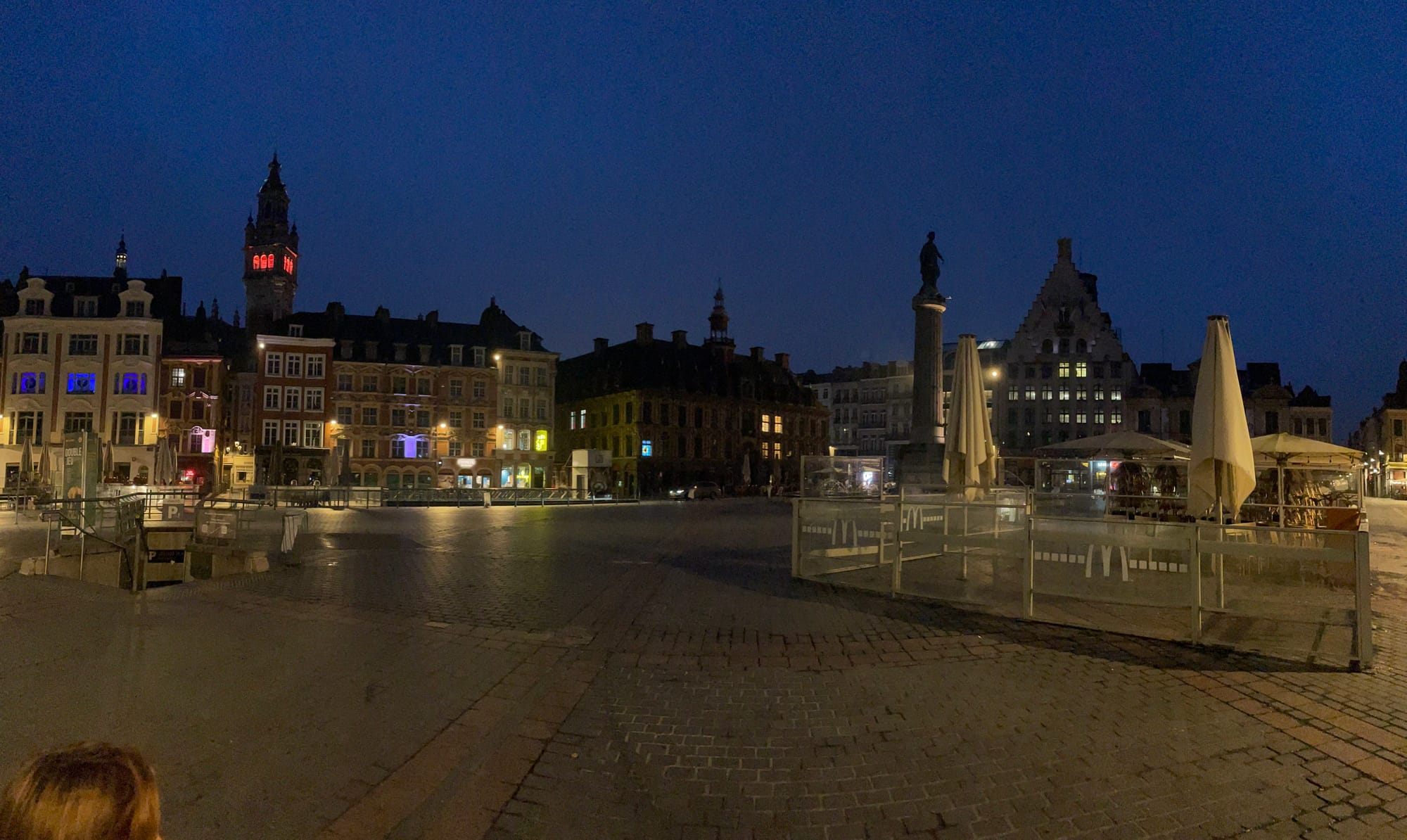
Last year during the course of the tournament I struggled to keep myself occupied; during the first couple rounds I got out my laptop to do a bit of work, then I snuck out to grab coffee, and by the end of it I was sitting on the floor reading a book. I didn’t want to venture too far, because I knew that between rounds the kids would need me…though I could also see that they were forming bonds with other players, so between rounds they were still deeply engaged.
This year, I spent barely a moment alone over the course of the two days and was instead floating between multiple groups of people I count as friends. I have a general rule of friendship that has served me pretty well: if you have hung out with someone in more than one country, then you’re good friends. This little world of Pokemon creates that context in abundance, and I have felt the way there has been a thickening of relationship. I’ve written before about the pod of families we tend to roll with at these events, and that pod remains intact…but on top of that there’s at least half a dozen other parents with whom I can hold a sustained conversation in between rounds, there’s the Italian father whose son has played against one or the other of my children multiple times so we greet each other warmly, there’s the German father competing alongside his 2 children[10] who I grab lunch with on Sunday and then settle in to watch the Masters quarterfinals with. Reader, I am not an extrovert and yet I choose this.
Is this a community? I ask myself. In a transitory sense it is. During these weekends when we are in the competition hall, we operate at a high level of social trust. These days I don’t know exactly where the kids are when they’re not competing, but that doesn’t cause me anxiety or concern - I know that they are embedded in a web of relationships that provides a high degree of safety. Outside of the weekend, the relationship thins out - though it doesn’t completely disappear as we remain connected on Discord, WhatsApp, iMessage. The non-localization means that this isn’t the community that will bring a meal to your family when someone has to be hospitalized. If I imagine 100 years ago, this idea of community was very general purpose and tightly coupled with geography. That form of community is certainly not obsolete, it’s just not monolithic anymore. And while there is something lost in that change in the way that it’s not built in or inherent, when we are able to build something out of our multiple intermingled communities I think it’s richer in many ways.
a note on longevity
One reason to play that I didn’t comment on above: the way that a player - especially in an in-person event where multi-tasking and external distractions are forbidden - gets caught up in the game and loses the sense of time.
I come across a lot in tech news lately about the push for increased longevity. Increased longevity largely seems to mean increasing the individual’s temporal range, how much calendar time they actually have in their lives. Back in the days when I was a university dropout, one of the many jobs I worked to make ends meet was driving elderly people to their medical appointments, so I’ve had sustained firsthand experience of the fallacy of longevity: more days are not necessarily better days.
An alternative or possibly a complement that I don’t think gets nearly enough airtime is the value of deepening the sensory experience of time: doing the things that fully capture one’s energy and attention such that you get lost in the temporal flow. Increasing temporal range and deepening sensory experience are not not mutually exclusive, but if I had to choose one I’d take the latter - I’d rather have one day out of the same total pool in which I’m deeply engaged and in flow rather than an additional day tacked on to the end where my mental, physical, and even social capacities might be seriously impaired.
soft launching nerd notes
If you’re still here, you stuck in it through nearly 3,000 words. That’s pretty wild. And here’s the thing: there’s a lot for this edition that I left on the cutting room floor because I felt like it was running long. So if you’re here, and you’re thinking, “Actually, I could do with even more of this” then let me make a little offer: I’m thinking of doing one more email a month just for the superfans. If there’s enough interest, then I’ll start supplementing this with what I’m calling Nerd Notes. For example, here are 3 things that I have left out over the past couple months that I think are interesting but might be a little too “in the weeds”:
- Why the pokemon deck generator tool doesn’t work: getting into some of the limits of generative AI
- Actual technological innovation in Pokemon: how the way the streams are presented show a very different non-generative AI use case
- The innovator in Masters play who no one copies: there’s a guy, Sander Wojcik, whose decks are masterpieces that no one else ever tries to adopt, and the reason why is so cool.
I’m going to do Nerd Notes as a paid subscription, mostly just to keep it from clogging up other people’s inboxes. How does $5/month sound? If you’re in, sign up here.
- In hindsight, I could have cleared it with my Pidgeot ex, but I didn’t think of that at the time.
- My 1 Munkidori, which I had at least 3 different ways to find and none of them worked.
- For the dedicated among you: he added in a Sand Shrew which prevents the other player from putting Trainer cards from their discard back into their deck and a Crispin which lets him attach an extra energy during the turn in which it’s played.
- Again, for the dedicated: he made the unorthodox decision to get rid of his Pokemon Catchers in order to play more single prize Pokemon that have advantages in very specific matchups.
- And was a little bit crusty because one of them should have been a win.
- (where the other player can only get 1 Pokemon on the board, so if that one gets knocked out they automatically lose)
- There is a wrinkle to the top 8, but I’ll only get into it when it becomes germane…because it’s complicated.
- And God help you if you’re now thinking of “French tacos”, which are an abomination.
- Except, of course, when it comes to the actual leaderboard. But even that is a construct that we all choose how much we care about.
- And doing far better than I am - see above, he’s actually playing to win.
- Which will have to wait for another day because this newsletter is already running pretty long.

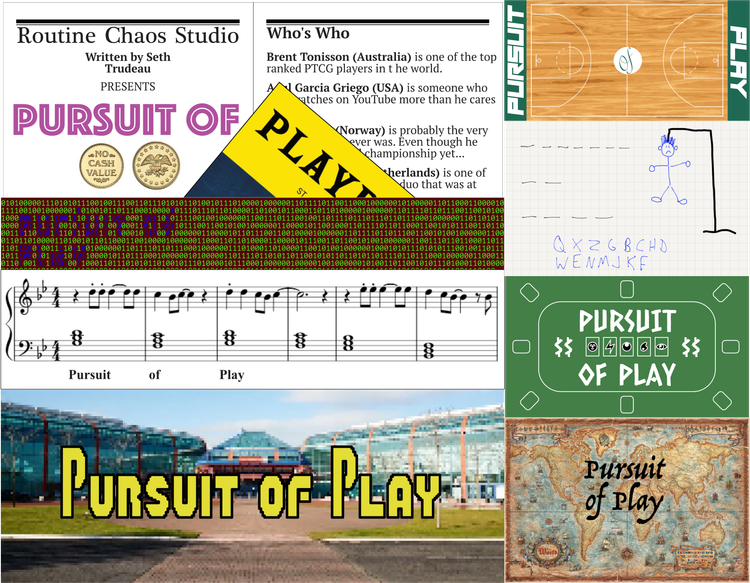

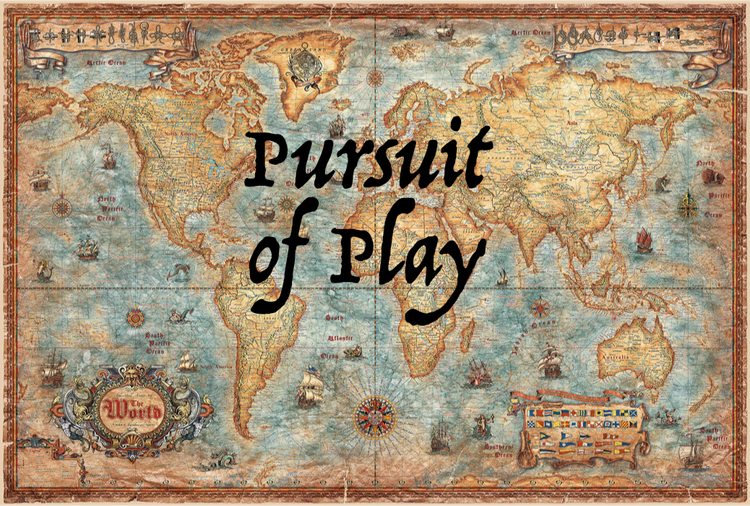
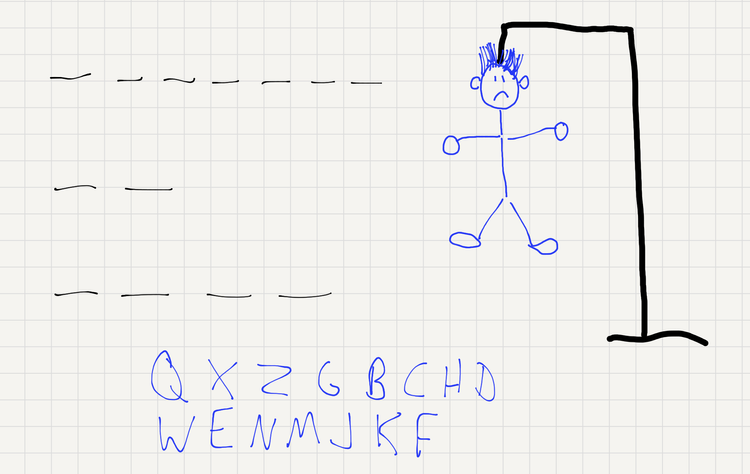
Member discussion